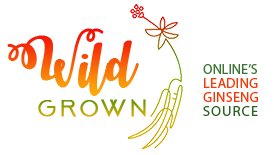By Kevin Stith
The use of herbs is a time-honored approach to strengthening the body and treating disease. However, herbs contain active substances that can trigger side effects and interact with other herbs, supplements or medications. For these reasons, herbs should be taken with care, under the supervision of a practitioner knowledgeable in the field of botanical medicine.
Possible side effects of Ginseng have a reasonably good safety record. The most common side effects are nervousness and excitability that usually decrease after the first few days. The ability to concentrate may be decreased, and blood sugar may decrease to abnormally low levels. Because ginseng has an estrogen-like effect, women who are pregnant or breastfeeding should not take it. Occasionally, there have been reports of more serious side effects, such as asthma attacks, increased blood pressure, palpitations, and, in postmenopausal women, uterine bleeding. To many people, ginseng tastes unpleasant.
Both American and Asian ginsengs are stimulants and may cause nervousness or sleeplessness, particularly if taken at high doses. Other reported side effects include high blood pressure, insomnia, restlessness, anxiety, euphoria, diarrhea, vomiting, headache, nosebleed, breast pain and vaginal bleeding.
Siberian ginseng may cause nervousness and restlessness in some individuals. In rare cases, Siberian ginseng may cause mild diarrhea. Siberian ginseng is not recommended for individuals with very high blood pressure. It may cause insomnia in some people if taken too close to bedtime. IF symptoms like breathing problems, tightness in the throat or chest, chest pain, skin hives, rash, or itchy or swollen skin develop, the use of taking Siberian ginseng may be stopped.
There have been reports that Asian ginseng may possibly decrease the effectiveness of the blood-thinning medication. Warfarin when taken with ginseng may inhibit platelet activity. Aspirin may not interact well either. Consult with your physician before taking any herbal supplement. The American Herbal Products Association (AHPA) has rated ginseng as a class 2d herb and specific restrictions apply.

